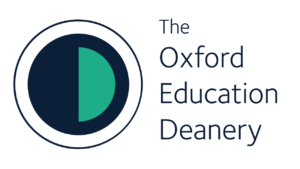The Project
This Deanery Digest is based on the following report: Ecorys UK and Sylva, K., (2025) Evaluation of the Early Years Experts and Mentors programme, UK Government.
What is this research about and why is it important?
This research is an evaluation of the Government’s ‘Experts and Mentors’ CPD programme for early years educators. Its findings will be useful to those planning CPD in the post-COVID-19 era when many early years settings are under-resourced and suffer staff shortages. As part of its COVID-19 recovery plan, funded by the Department for Education, the Experts and Mentors programme offered 1:1 professional support inside the settings or online for individual members of staff. The Experts and Mentors programme aimed at improving staff support for children’s personal, social and emotional development (PSED) alongside their communication and language skills – the two areas where children’s development suffered the worst effects of lockdown and nursery closures. Targeted support and coaching were offered over one term to setting leaders and front-line educators through on-site visits, online mentoring and a child development course. This evaluation demonstrated the success of the programme from 2022-2024 and turned a spotlight on the benefits of coaching within CPD.
What did we do?
The evaluation used a blend of methods – surveys, interviews and observations – to explore the implementation and effectiveness of an early years intervention.
To be eligible to take part, the early years setting had to be located in an area of social disadvantage or cater to children vulnerable in some other way, e.g., an identified SEND or being in care. Altogether 1,309 of the settings scheduled to receive the CPD intervention were invited to take part, 476 agreed to participate and provided data. A randomised control trial was used, which means that participating early years settings were randomly divided into two groups: one received the programme immediately and the other had to ‘wait’ a year to begin. The first group formed the intervention group and the second the control group. This design helped the evaluators determine whether any changes in confidence or skills were actually due to the programme and not something else.
Pre- and post- intervention surveys were used to document change in educators’ confidence in supporting children’s development in those domains most affected by COVID-19. The survey listed different strategies staff might use to support children, and respondents rated their confidence in using each strategy on a scale from 1-5. Data were collected from three cohorts of respondents who began the intervention in different school terms. More than 200 intervention settings contributed pre- and post- data for analysis and about the same number of control settings.
In addition to survey scores on confidence in supporting development, qualitative interviews were carried out with recipients of coaching as well as their coaches and mentors to learn first-hand about experiences and views on the programme. Some training sessions for experts were observed and administrative data on attendance was collected. In all, this blend of methods helped the evaluators tell a fuller story about the ‘process’ of the intervention (whether it was delivered as intended and how practitioners experienced it) as well as its ‘outcomes’ in terms of the impact it had on practitioners’ confidence and skills.
What did we find?
We found that educators improved their confidence and skill between the pre-test (before the programme began) and the post-test (when it ended). The gains were greater in PSED than in communication and language, but both showed significant gains.
The interview data were compelling: managers and educators reported improved pedagogical skills and knowledge about child development that they could implement in everyday practice. Unexpectedly, we found that the experts and mentors were the most favourable about the programme. The role of coach or mentor was especially rewarding; their task was complex because it required them to work sensitively and differentially in settings very different from ones familiar to them. Findings were not always positive, with some settings reported confusion between the roles of ‘expert’ (coach) and ‘mentor’ (academic tutor). Despite minor frustrations, expert coaches, course mentors and practitioners reported benefits in skill and confidence in supporting those aspects of child development that suffered the most from COVID-19, indicating money well spent.
What does it all mean anyway?
The early years workforce is in crisis with new family entitlements to free childcare stoking up the fire and putting pressure on supply. This study shows the effectiveness of bringing CPD into the setting through tailored 1:1 support for leaders and their staff. CPD was not something ‘taken’ in a distant venue; it was something ‘lived’ in the preschool itself when coaches worked alongside front line educators. In post-COVID-19 times of intense pressure on the early years workforce, this CPD programme inspired coaches and lifted educators’ self-reported practice. The lesson for future CPD programmes is to combine onsite coaching of setting leaders with online support to consolidate and extend the coaching. Hybrid coaching may be a way forward.

